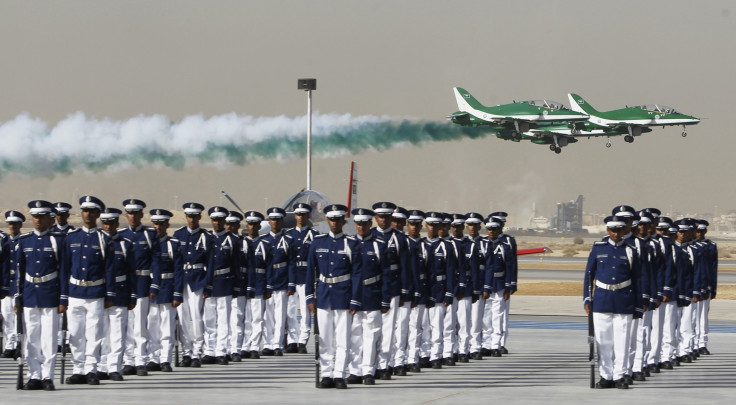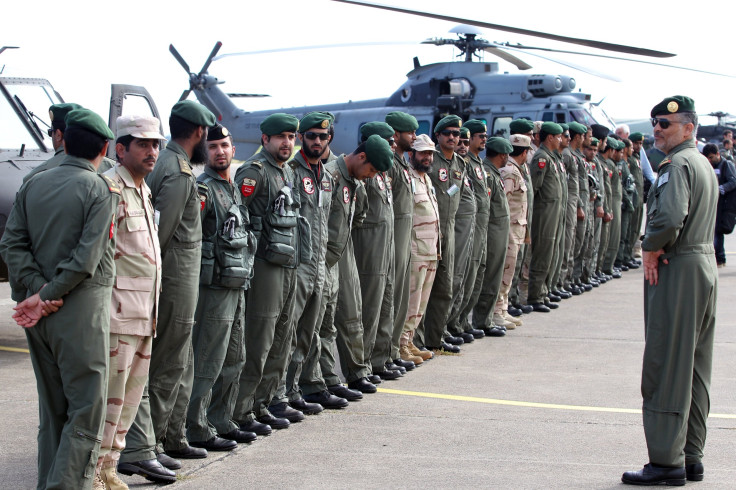After Paris Attack, Saudi Arabia, Other Regional Allies Under Pressure To Take On Greater Syria Role

The coordinated terror attacks across Paris that left more than 130 dead and hundreds wounded have sparked renewed calls for regional powers like Saudi Arabia to play a greater role in solving the Syrian crisis, particularly by leading the fight against the Islamic State group, also known as ISIS. During Saturday evening’s Democratic debates, for example, U.S. presidential hopefuls called on Arab states to take the lead in the fight against ISIS to help avoid entrenching the U.S. in another long-term Middle East conflict and alienating Muslims in the region.
In addition, some experts are calling on the Saudis to stop their governmental and private support of controversial Islamist groups and negotiate for a permanent solution. While Saudi has continued some of its controversial policies, those experts said it appeared Saudi Arabia has grown increasingly willing to sit down with other regional and international, often adversarial powers, to work out a solution and defeat ISIS as the group has stepped up attacks beyond its Syria and Iraq borders.
Saudi Arabia has funneled millions of dollars into groups like Jaysh al-Islam, which while controversial has also been seen to counteract the influence of al Qaeda and its affiliates. But support for such groups has turned the Syrian conflict from a two-sided conflict into a complicated, multifaceted one, critics of Saudi Arabia’s policies say. Saudi leaders and private Saudi businessmen have also been accused of supporting more radical groups, including al Qaeda, and some analysts said Saudi Arabia needed to first be pressured to crack down on that support.
“They need to inform their private princes that their financing has to end, it’s over. That game is finished, it’s too dangerous” said Vijay Prashad, a professor of international studies at Trinity College in Hartford, Connecticut. said. “Secondly, Jaysh al-Islam needs to be disbanded. It’s going to prevent a proper dismantling of ISIS.”
Calls for Saudi Arabia to intensify its involvement in the Syrian conflict, such as those voiced Saturday by the Democratic candidates, reflect a misunderstanding of current Saudi involvement in the conflict, some analysts said. Gulf states, particularly Saudi Arabia, have already been heavily involved in Syria, and have poured millions of dollars into proxies in the country and have strongly supported the U.S.-backed airstrike campaign. Some believe Saudi Arabia, although not equipped with the same military capabilities as the U.S., has already been in the drivers’ seat, though others maintain their role in Syria has been less than helpful and in need of being rethought.
"The Saudis have been involved even when we weren’t, so I find that egregiously hypocritical. It’s not even hypocritical -- it’s kind of the bland statement everyone’s making,” said Roby Barrett, an expert on Syria with the Middle East Institute in Washington. “The Saudis have actually been involved in this from the get-go. They’ve actually been the one’s pushing us to get involved.”
Barrett said the Saudis have provided viable alternatives on the ground for Sunnis disgruntled by oppressive Shiite regimes in Baghdad and Damascus. He disagreed with other analysts who have viewed Saudi support for Islamist opposition groups as among the underlying reasons for the spread of ISIS and other radical groups. They have called for the Gulf nations not simply to increase their involvement – but to totally rethink their policies.
Prashad, meanwhile, said the expectation that Saudi Arabia and other Arab states should take the lead militarily in Syria is naïve. The Saudi government has rarely used its military to intervene in conflicts, and where they have used military might, like in Yemen, its forces have not seen great results. A Saudi-led coalition has been fighting against Iran-backed Houthi rebels in Yemen since March, and has seen only limited progress in reinstalling the Saudi-backed government. Since then, they have scaled back their involvement in Syria.
“When Hillary Clinton says they should be doing more, she’s very aware, she knows far better than I that Saudis don’t have a history of army involvement in any place like this,” Prashad said.
In addition, Saudi Arabia has also grown increasingly concerned about its own financial stability. The treasury is at risk of running dry, and the regional leader was expected to see a budget deficit of some 21.6 percent of its GDP this year. The kingdom’s engagement in Syria and Yemen has already grown outstretched, and some have noted that the country no longer seemed “energetic” about its prolonged conflicts, according to the Asia Times.

While Saudi Arabia has continued to insist any solution must involve Assad transitioning out of power – and has threatened to increase support for rebels if it does not – the country has seemed more open to working with global powers in seeing through a transition of Assad’s regime. Saudi Arabia’s leadership has even mulled over the idea of visiting Russia to discuss the Syrian crisis, according to Asia Times.
The prospective visit signals that Saudi Arabia might be willing to see a transitional phase for Assad to leave power, meaning the country’s leadership too might start setting its sights on taking out ISIS rather than Assad. The move seemed to indicate that Saudi Arabia was ready to take the lead in a regional effort to find a negotiated solution to the Syrian crisis, realizing that its backing of military forces on the ground has seen limited result.
“It is not logical to say you must take down Damascus and ISIS,” Prashad said. “It’s just not possible. You’re going to burn down the whole house.”
© Copyright IBTimes 2024. All rights reserved.






















